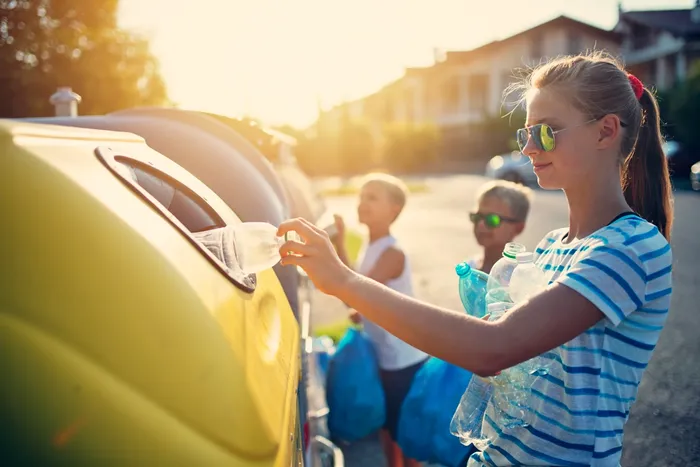Any idea whose mission statement this is?
To provide independent, objective analysis and advice to the nation and conduct other activities to solve complex problems and inform public policy decisions.
Given the complex problems we’re facing as a nation and as a global community, we sure could use help like this now.
It’s the National Academies of Sciences, Engineering, and Medicine. And we’ve asked Congress to request some “independent, objective analysis” from the National Academies to “inform public policy decisions” related to plastics and sustainability.
5 Actions to Increase Circularity
That’s Action #4 of our 5 Actions for Sustainable Change, five simple and important steps Congress can take to accelerate a circular economy for plastics through a comprehensive, national strategy.
In case you’re unfamiliar, moving to a circular economy will rearrange the way our society makes and uses things. In today’s “linear” economy, manufacturers typically take raw materials and make products that are used… and then discarded in landfills, incinerators, or far too often our environment, particularly our ocean. We’ve all seen the results.
Instead, a circular economy keeps those materials in use for as long as possible and then reuses them to make new products. This reduces the need to extract raw materials, drives down greenhouse gas emissions, and significantly reduces our environmental footprint.
Importantly, it also helps prevent these materials from littering our environment, rivers, and ocean.
Life Cycle Studies
While helping create a circular economy for plastics, we want policymakers to take a broad look at the sustainability of the various materials used to make products and packaging. Public policies must be developed based on data and science, not ideology or ignorance, especially on such important topics as climate change and the environment.
So, Action #4 asks Congress to direct the National Academies to conduct a study on the comparative benefits, resource use, resource efficiency, and carbon impact of materials such as plastics, steel, aluminum, glass, textiles, wood, and paper. The study would cover the entire lifecycle of materials – raw material extraction, processing, transportation, production, packaging, use, disposal, and recovery/recycling.
Basically, they’d be measuring sustainability.
Findings?
What will they find? We don’t know. But multiple studies have found that plastics contribute significantly to sustainability. Modern plastics have been replacing older materials such as metals, paper, and glass for decades, primarily because plastics are typically more efficient. Plastics allow us to do more with less, which reduces their environmental footprint compared to alternatives.
An example? Greenhouse gas emissions. Based on decades of life cycle studies on the environmental impacts of consumer goods, multiple researchers have concluded:
- The use of plastic packaging and products can significantly reduce greenhouse gas emissions compared to alternatives such as steel, paper, aluminum, glass, etc. Likewise:
- Replacing plastics with alternatives in many applications would significantly increase greenhouse gas emissions.
But most people – and policymakers – don’t know this.
Results
It would be really informative and helpful for the National Academies to review these and other studies and “provide independent, objective analysis” to “inform public policy decisions.”
The results would be very useful in guiding public policies by comparing the sustainability attributes of the multiple materials we all use. It would help answer important questions such as which materials best optimize our resources, conserve energy, preserve food, reduce greenhouse gas emissions… Measures of sustainability.
As they note, the National Academies “encourage education and research, recognize outstanding contributions to knowledge, and increase public understanding in matters of science, engineering, and medicine.”
A little increased public understanding sure sounds good.

